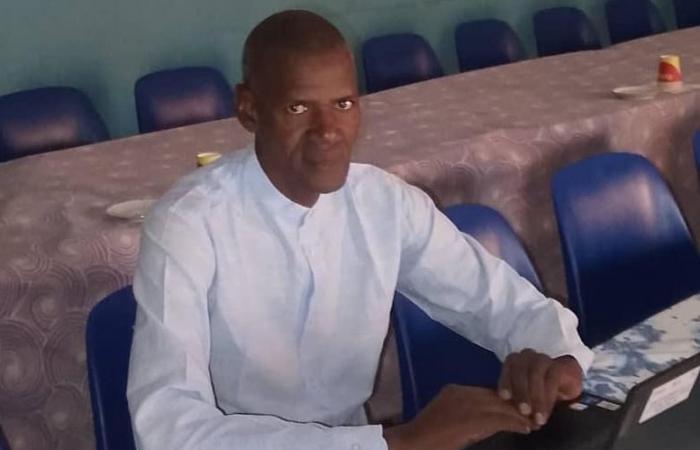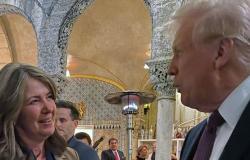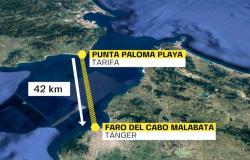This revised project entitled “vision Senegal 2050” is structured around four strategic axes (competitive economy, quality human capital and social equity, sustainable planning and development and good governance and African commitment).
Its implementation is subject to the General Policy Declaration (DPG) that the Prime Minister finally presented on December 27, 2024 to the deputies of the 15th legislature. This republican exercise, both solemn and strategic, constitutes a key moment in the political life of the country. It was an opportunity for the Prime Minister, after eleven o’clock, to get the people’s elected representatives to adhere to the strategic vision, reforms and priority actions that the government intends to implement over the next five years.
Allow me, after having followed this DPG with interest, from start to finish, to make a personal analysis of the main moments which punctuated this long day.
First, the deputies overwhelmingly praised the DPG. Their interventions focused mainly on questions of deepening, clarification, proposals and amendments. This 104-page document, extremely detailed, traces the main pillars on which the government intends to rely to carry out its first five-year term.
Then, the mastery of the project by the Prime Minister who provided clear and documented answers to all the questions raised by the deputies.
Now speaking about the points addressed by the Prime Minister, I will choose a few which seem fundamental to me and which, as we approach 2029, should allow us to assess the success or otherwise of the project. We can cite among others:
The report of the amnesty law: To this end, the government must shed light on the crimes committed by the Senegalese during the events that took place between March 2021 and February 2024. The Senegalese are impatiently awaiting the decisions of the courts;
The establishment of the high court of justice: Jacobin management of our heritage and state funds by certain ministers has dragged the country into total debt. With the installation of the High Court of Justice, we dare to hope that all light will be shed on their management so that all the guilty are brought to justice; which will serve as lessons for
current authorities. General directors and PCAs of the outgoing regime must also be audited on their management;
Justice reform: the texts which govern our society are for the most part obsolete because they date from independence and are often the subject of controversy and unhealthy practices. The time has come to adapt them to our socio-cultural realities while complying with international texts ratified by our State;
The tax review: many employees are victims of abusive tax cuts at a time when several companies have a tax exemption, often without justified reason. To this end, the State must review its tax policy by regularizing exemptions and providing relief to public sector agents who are victims of overtaxation;
Administrative reform: Many civil servants suffer from administrative delays. Some travel thousands of kilometers to settle personal matters. The digitalization of public services will considerably improve accessibility to public services, efficiency and internal management of services through empowerment;
The formalization of development centers: the objective of these centers is to promote the conditions for establishing new job-generating activities. These groupings of companies and establishments from the same geographical region will also make it possible to develop the economic potential of the said region and to relieve congestion in the capital but above all to move towards food self-sufficiency.
Youth employment:
The establishment of eight development poles, the promotion of Small and Medium Enterprises (SMEs), the creation of processing units, the development of artificial intelligence, professional training, recruitment in the public service are all possibilities offered to the State to find employment for its youth;
Reducing the cost of living: This is a big battle that the current government must win. Despite the efforts made, we are still witnessing the high cost of living and a lack of control of approved prices. To compensate for this failure, the State must put in place a monitoring and control system for all recommendations resulting from meetings with technical, financial and social partners;
Access to basic social services: Education, health, water, electricity, infrastructure and housing are important services that every human being must benefit from to ensure their survival. Consequently, the State must give priority to these basic services without which development risks being compromised.
Modernization of the health sector: our health structures, for the most part, lack everything: Absence of a high technical platform, glaring deficit of quality personnel, dilapidated equipment, opaque management of resources, etc.
The State must build, in each region, hospitals
latest generation, well equipped with quality staff and put in place a functional system guaranteeing the implementation of quality management standards, regulation and transparent and inclusive governance.
The review of teaching programs and the development of new alternative models:
The programs taught in our establishments, from preschool to university, including elementary, middle and secondary, are extremely heavy. We want to make our pupils and students aware of everything; which is impossible. Therefore, it is urgent to review these programs and align them with our cultural realities. Other areas such as the generalization of the learning of our national languages, the promotion of our cultural values and other alternative models such as the development of daara, digital technology, the development of inclusive schools and establishments, bridging classes, Functional Literacy Classes deserve to be strengthened to promote an educational society and quality education for all;
Appeasement of the social climate: From March 2021 to February 2024, our country experienced a social upheaval marked by unlimited strikes by unions of all kinds in search of better living conditions. The current government must create frameworks for sectoral exchanges with unions and trade union centers for a careful study of their grievances. Certain fallacious and utopian promises must be avoided.
In light of our analysis, we can certify that the “horizon 2050” benchmark is a boon for the country. This well-thought-out, realistic and achievable project will allow our dear Senegal to rise, in the years to come, to the rank of emerging countries. During his speech to the nation held on December 31, 2024, the President of the Republic reiterated his firm desire to implement this project voted by the national representation.
While wishing you a very good reading, I hope in the days to come, if it pleases the good Lord, to develop in detail each of the twelve (12) points listed.
Al Ousseynou KA
PASTEF DAKHAR BANGO SAINT-LOUIS






